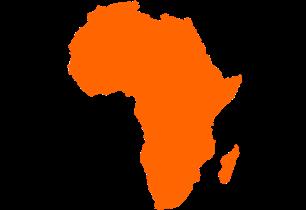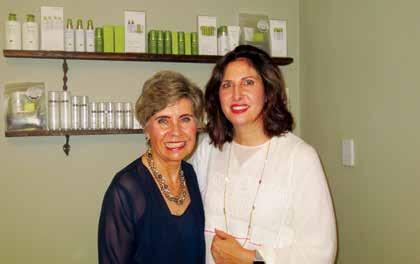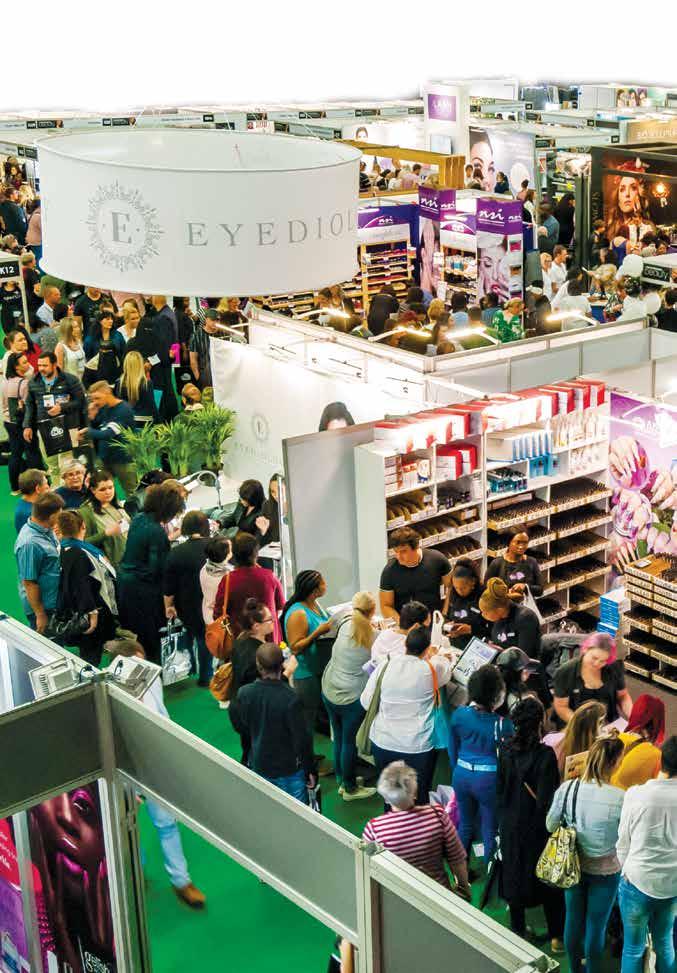
10 minute read
Industry news
News
South African spa and salon owners, as well as the distributors of products and services to this industry, must have breathed a sigh of relief when Minister of Finance, Tito Mboweni, announced on 26 February that VAT would remain the same, meaning that no extra VAT has to be added to treatment and product prices.
Advertisement
In addition, the Minister announced that there would be income tax relief of around R2 billion. Mboweni has committed to curtailing Government’s own spending – such as its astronomical wage bill that reportedly accounts for almost a third of its overall spend – rather than increasing personal income tax.
Government’s depressing debt problem aside, Mboweni’s budget speech was, for the most part, well received. On the downside, we can expect fuel hikes this year, which automatically means delivery costs for beauty products will increase, plus consumers may tighten their belts, resulting in less available spend for beauty and spa treatments. The fuel levy has been increased by 16c, and the levy for the Road Accident Fund (RAF) rose by 9c.
The few corporate businesses in the beauty and spa industry must be encouraged by Government’s plan to lower the corporate tax rate, which has remained unchanged at 28% for more than a decade.
According to Business Insider, the Government expects that the economy will only grow by 0.9% this year – and that’s with the assumption that exports will grow by 2.3%.
Meanwhile, since December 2019, world trade has gone haywire due to the panic surrounding the rampant spread of the coronavirus around the globe. How the national budget affects the industry
Government places tourism high on its agenda
As this issue of Professional Beauty went to print, the spread of the coronavirus was still adversely affecting the global tourism market. However, at the beginning of March, South Africa’s Tourism Deputy Minister, Fish Mahlalela, confirmed that government had placed a strong emphasis on tourism for sustainable growth and job creation. This is welcome news for South African spas and wellness centres, many of which are situated within destinations, resorts, game reserves and hotels that enjoy the patronage of tourists.
Said Mahlalela: ‘The South African government has signed a Memorandum of Understanding/ Agreements with 27 countries across the globe, and continues to negotiate others with the aim to strengthen bilateral relations in the field of tourism.”
Mahlalela was speaking at the official opening of the recent threeday Tourism Best Practice workshop
currently underway in Kempton Park, near Johannesburg, attended by international delegates, Mahlalela said the potential of economic growth and development related to the tourism sector are fully recognised, at both the continental and international levels.
He continued: “In the African context, the tourism sector is confronted with a number of issues, not only in its long-term development and prosperity, but also in the strategic orientation including dealing with issues such as safety and security, as well as health challenges. “It is important to develop a tourism action plan with the view to optimise the role of tourism as an engine and catalyst for economic development and growth in Africa, through the establishment of conducive environment, regional cooperation advocacy and stakeholder participation.”
In South Africa, the Tourism Grading Council (TGCSA) is the only officially recognised and globally credible quality assurance body for tourism products, in terms of the Tourism Act 3 of 2014.
The TGCSA recently announced new and revised grading standards for South Africa, including the introduction of three new categories in the form of apartment hotels and small hotels, in which the luxury form (boutique hotels) are incorporated.
inbrief
// CNN Style has launched a brand new beauty section, making it the first global mainstream platform to offer intelligent, inclusive and value-driven editorial on personal image and beauty.
// Cape Town’s Tintswalo Atlantic has launched three ‘Mindfulness Pause Retreats’, for guests who want to experience life more mindfully and who want to expand their awareness and growth.
// A new study from the Global Wellness Institute – ‘Move To Be Well: The Global Economy of Physical Activity’ – defines the six-sector global physical activity economy as comprising the fitness, sports & active recreation, mindful movement, equipment, apparel/footwear and technology markets.
// Researchers at Columbia University Irving Medical Center are investigating whether CD1, a molecule found on Langerhans cells and which resides on the basal and suprabasal layers of the epidermis, could be the key to preventing contact dermatitis.
// Following the InterContinental Hotels Group’s recent commitment to remove miniature toiletries in small plastic bottles from all its rooms by 2021, Marriott International will now switch from single use toiletries to refillable, larger bottles with a convenient pump design.
// The rise in the world’s ageing population, disposable income and awareness about the efficacy of aesthetic treatments is predicted to boost the global aesthetics market to $103.4 billion by 2026, exhibiting a CAGR (Compound Annual Growth Rate) of 8.9%.
South African manufacturers of skincare, nail and body care products who export into Africa are likely to benefit from the African Continental Free Trade Area, which is expected to come into operation in July 2020.
Africa’s new trading block was endorsed by President Cyril Ramaphosa, when he delivered the keynote address at the 2020 edition of the Ubuntu Awards held in Cape Town recently.
Stated the President: “The African Continental Free Trade Area will be an important step towards rebalancing global trade relations and levelling the playing field for

African businesses. Through the Continental Free Trade Area, we want to reignite industrialisation, boost intra-African trade and benefit from the largest common market in the world.”
The agreement will see member states removing tariffs from up to 90% of goods, allowing free access to commodities, goods, and services across the continent.
Several African states, including South Africa, Namibia, Zimbabwe, Mauritius, Egypt, Ghana and Kenya, have already signed and ratified the sagreement.
CBD disrupts traditional beauty market Sales in the global CBD skincare market are forecasted to reach $959 million by 2024, according to cannabis market and strategic consultancy firm Prohibition Partners’ latest data. The Impact Series: Disrupting Beauty report reveals that CBD skincare could account for around 10% of all global skincare sales within the next five to 10 years.
It notes that cannabidiol (CBD oil) is disrupting the traditional beauty market, with consumers demanding products that contain the wonder ingredient, which has been proven to have anti-inflammatory and antiageing properties. CBD’s popularity has even impacted the professional beauty salon and spa market, with treatment protocols being given a CBD upgrade to help clients calm and soothe the skin. (Source: Professional Beauty UK)

Camelot opens new spa in Bantry Bay
The latest in the Camelot Spa collection has opened at Aurum, the luxurious new redevelopment in Bantry Bay, Cape Town.
This brings the number of Camelot Spas in South Africa to 20.
Speaking to its location of mountain and sea, Camelot Spa Aurum fuses botanical décor with textured wood and marble, along with a serene colour palette of light greys, greens and honeyed gold.
The spa’s luxurious facilities, meanwhile, have used the boutique space smartly and elegantly, presenting a renaissance for the senses in aptly named rooms: Altea (Healing), Elysia (Blissful), Maran (woman of the sea) and Oriane (soft and mild sound of water).
Upstairs, past the relaxation area, guests will encounter three single treatment rooms (one of which has a healing Himalayan salt wall), one double room with a hydrotherapy bath and another that includes a vitality aroma sensation shower. Revolutionary technology allows water to be propelled through high pressure spouts, along with vitamin C and aromatherapy oils.


An extensive spa menu represents a combination of massage therapies and beauty treatments, together with treatments and journeys for the face and body.
Camelot Spa Aurum is managed by Monique Lagorie.
New moves at Futurethis
Dominique Wolf has been appointed marketing manager at Futurethis, the distributor of QMS Medicosmetics, Team Dr Joseph, Rites Skin Solutions and Skinny Green products.
Wolf began her career in the magazine industry working for Cosmopolitan magazine. She says: “Having worked with beauty and fashion on the media side for years, as well as having a vested interest in business and marketing, my move to Futurethis felt like a totally natural and logical career move.
“I have known Renate Klass, the MD of Futurethis, for years on a personal and business level and have an enormous amount of respect for the people that make up the business and its strong ethics and values. So, I am very excited for my role as the new marketing manager and look forward to catapulting all
our brands into the limelight where they belong.”
Campaign to destigmatise peels launched
In an innovative move, American medical skincare brand, PCA Skin, launched the first ever Annual National Skin Peel Day (10 March 2020), to educate consumers on the non-invasive, truly transformative skin treatment and share what a chemical peel can do for the health of one’s skin and various skin concerns.
“We have found that there is a large number of people who avoid chemical peel treatments due to the misconceptions and misinformation that surround it,” said Anish Agarwal, chief marketing officer at PCA SKIN. “Upon our 30th anniversary this year, we are committed to making people aware of peel treatments and their benefits so they can make it a part of their skincare regimen.”
Bramwell launches Donate-a-Loo Schools project
Veteran, pioneering beauty industry professional, Helene Bramwell of The Mask in Parkview, Johannesburg, has launched the Donate-aLoo Schools Project to help alleviate South Africa’s severe sanitation issues in schools.
Says Bramwell: “This cause is devoted to providing safe, reliable and decent sanitation as a means of restoring dignity. The Donate-a-Loo solution conserves water resources, requires no expensive reticulation or sewage treatment plant and comes with a maintenance plan for the recipient school. We look forward to rolling out this initiative to schools in South Africa and surrounding areas as and when we receive funding.”
She reveals some frightening statistics relating to sanitation – in rural areas of developing countries, nine out of 10 people practice open defecation. “Every 20 seconds a child dies as a result of poor sanitation,” continues Bramwell. “Only a quarter of total water & sanitation funds are spent on sanitation. Some of the challenges we are facing in South Africa include schools that have no sanitation, or insufficient sanitation, or sanitation that is not fit for purpose (i.e. not age appropriate). Then there are those schools with pit toilets, which are dangerous as children can fall into them. Meanwhile, other schools have been provided with sanitation but have not yet demolished their pit toilets.”
Bramwell notes that lack of access to proper toilets leads to all sorts of health problems, including contaminated drinking water. Every year 361,000 children under the age of five die due to diarrhea, which is linked to poor sanitation and contaminated water. Companies that have sponsored Donate-a-Loo toilets to date include Professional Beauty South Africa and Futurethis, with donations from a few salons, Eskel Jawitz and Charities Unlimited. In addition, Roatary New Dawn in Parkview has adopted the project and will give it their support.
Says Phil Woods, commercial director of Professional Beauty South Africa: “We are hoping to motivate Professional Beauty UK to support the Donate-aLoo cause, as well as the UK Rotary Club.” Waterless sanitation The Donate-a-Loo project centres on the Dry Sanitation


NEWS IN PICTURES
Toilet (i.e ‘Enviro Loo’), a dry, waterless sanitation system that requires no water. It is a permanent installation that doesn’t need expensive reticulation or sewerage infrastructure and is odourless under normal operating conditions.
A single toilet costs R21,254.88; this includes site clearing, excavation, installation, building and labour cost, transportation and accessories for six units. Anyone wishing to sponsor a toilet, or make a donation, can email the Donate-a-Loo project team on donatealoo@ mweb.co.za.
At the heart of the professional beauty industry...
Events 2020

Due to the recent announcement by the President, we are postponing the dates of our Cape Town and Durban events. New dates will be announced shortly.

Professional Beauty Johannesburg is scheduled to take place on the 30th and 31st of August 2020, as this is outside the 3 month ban, we will obviously monitor the situation as it develops.










